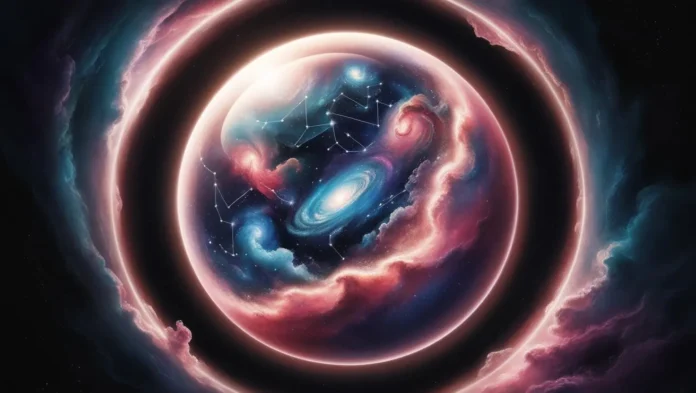Can the universe fit inside AI is a question that sounds like science fiction, but it’s not just a philosophical musing—it’s a serious thought experiment driving new frontiers in artificial intelligence, physics, and computational theory. As AI systems grow more advanced, the idea that they could someday fully model, simulate, or comprehend the universe invites equal parts wonder and skepticism.
In this article, we explore the current limits and possibilities of AI in modeling reality, how far we’ve come, and whether it’s even theoretically possible to contain a representation of the universe within artificial intelligence.
Contents
What Does It Mean to “Fit the Universe” Inside AI?
Before diving into technicalities, let’s define what this question actually implies. “Fitting the universe” into AI could mean several things:
- Full Simulation: AI can recreate the universe’s physics, particles, and forces.
- Abstract Understanding: AI comprehends fundamental truths or physical laws.
- Predictive Modeling: AI forecasts cosmic events, behaviors, or systems.
Each interpretation requires different computational, philosophical, and informational capacities.
Mini-Definition: Simulation refers to an AI model’s ability to virtually recreate real-world systems using algorithms and data-driven predictions.
How AI Is Already Modeling the Universe
Artificial intelligence is already deeply embedded in astrophysics and cosmology. While it doesn’t “understand” the universe the way a physicist might, it contributes in ways humans simply can’t—through speed, scale, and pattern recognition.
Notable Applications
- Galaxy classification: AI sorts images of galaxies faster than astronomers.
- Gravitational wave prediction: ML models identify wave signals in noisy datasets.
- Dark matter mapping: Deep learning helps estimate invisible mass distribution.
Real-World Tools and Projects
| Project or Tool | Purpose | Organization |
|---|---|---|
| DeepSim | Simulates cosmological structures | Various AI labs |
| PINNs (Physics-Informed NN) | Solves equations governing physics systems | Stanford, others |
| Vera C. Rubin Observatory | Uses AI for real-time sky-event classification | LSST Project |
To learn more about how AI optimizes real-time analysis, check our AI-Powered Workflow Automation article.
Barriers to Full Cosmic Simulation
Despite the impressive advances, several hard limitations make full universal modeling unattainable—at least for now.
1. Incomplete Data
We’ve only observed ~5% of the universe. The rest—dark energy and dark matter—remains largely unknown.
2. Computational Power
Even the most powerful supercomputers struggle with planet-scale simulations. Simulating the entire universe would require processing more data than atoms in the known cosmos.
3. Philosophical Boundaries
AI lacks consciousness. It doesn’t understand in the human sense; it predicts based on data.
Mini-Definition: The Frame Problem describes AI’s difficulty in adapting learned knowledge to new, unpredictable situations.
Summary Table: Barriers to Containment
| Limitation | Explanation |
| Data Gaps | Unobservable portions of the universe hinder full input |
| Processing Limits | Current hardware can’t handle such massive complexity |
| Consciousness Gap | AI lacks awareness to form philosophical understanding |
Could Future AI Overcome These Limits?
It’s possible. Advancements in hardware and theoretical models could make AI far more capable.
Technologies That Could Push the Limits
- Quantum Computing: Could process entangled systems mimicking quantum behavior.
- Artificial General Intelligence (AGI): Would enable AI to reason abstractly like a human.
- Neuromorphic Chips: Mimic human brain structure to improve adaptability and energy efficiency.
For a deep dive into next-gen AI models, check our comparison: GPT-4 vs GPT-5: Key Differences.
External projects like NASA’s AI program are already using AI to make decisions in unpredictable environments like space.
Is the Universe a Map or a Territory?
Even if AI could simulate the universe, would that be the same as containing it?
As philosopher Alfred Korzybski famously noted, “The map is not the territory.” This idea reminds us that any model, no matter how detailed, is still a simplification. AI may mirror universal laws, but it will never be the universe.
Moreover, Gödel’s Incompleteness Theorems suggest that any system complex enough to describe reality will always contain truths it cannot prove—limiting even theoretical models.
Key Takeaways
- AI already contributes significantly to astrophysics and cosmology.
- Modeling the entire universe is currently beyond reach due to data, computation, and abstraction limitations.
- Future tech may close gaps, but philosophical barriers remain.
- The idea invites deeper reflection on intelligence, representation, and the limits of simulation.
FAQs
Q1: Can AI simulate the universe in full detail?
No. While AI can model parts of the universe, simulating it entirely is far beyond today’s technology.
Q2: What role does quantum computing play in this question?
Quantum processors may allow future AI to handle entangled systems, bringing simulation models closer to reality.
Q3: Could AGI understand the universe better than humans?
AGI might process more information faster and with less bias, but it’s uncertain if it could develop human-like insight.
Q4: Where can I learn about foundational AI principles?
Start with our Prompt Engineering Guide to understand how inputs shape AI behavior.
Conclusion: Seeking the Infinite in Code
So, can the universe fit inside AI? Not today. Perhaps not ever. But in striving to model our cosmos, we also model our limits, our creativity, and our curiosity.
As AI advances, it may never replace human insight—but it can enhance our journey to understand existence. And maybe, that’s more important than complete simulation.
What’s your take? Could machines ever mirror the universe? Join the discussion below and share your thoughts!

This article really made me think. I’ve read a lot about AI, but framing it against the scale of the universe puts things into a whole new perspective. The part about AGI possibly surpassing human understanding was both fascinating and a bit unsettling. Great read—looking forward to more pieces like this